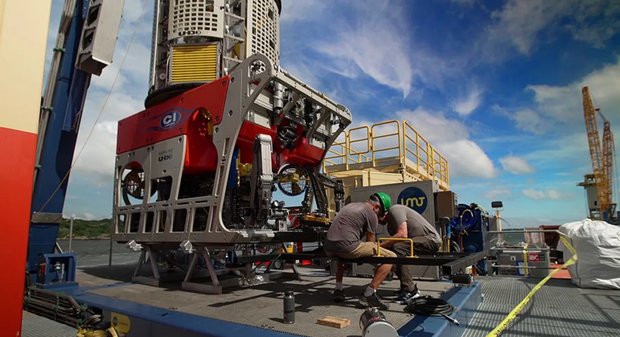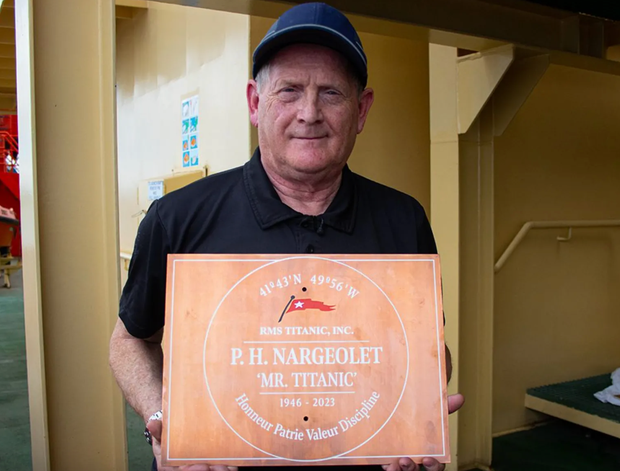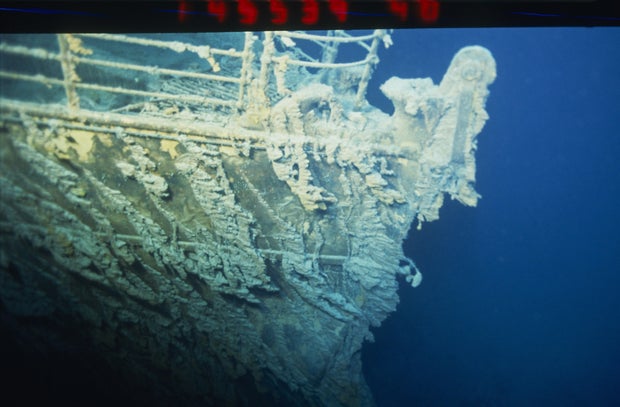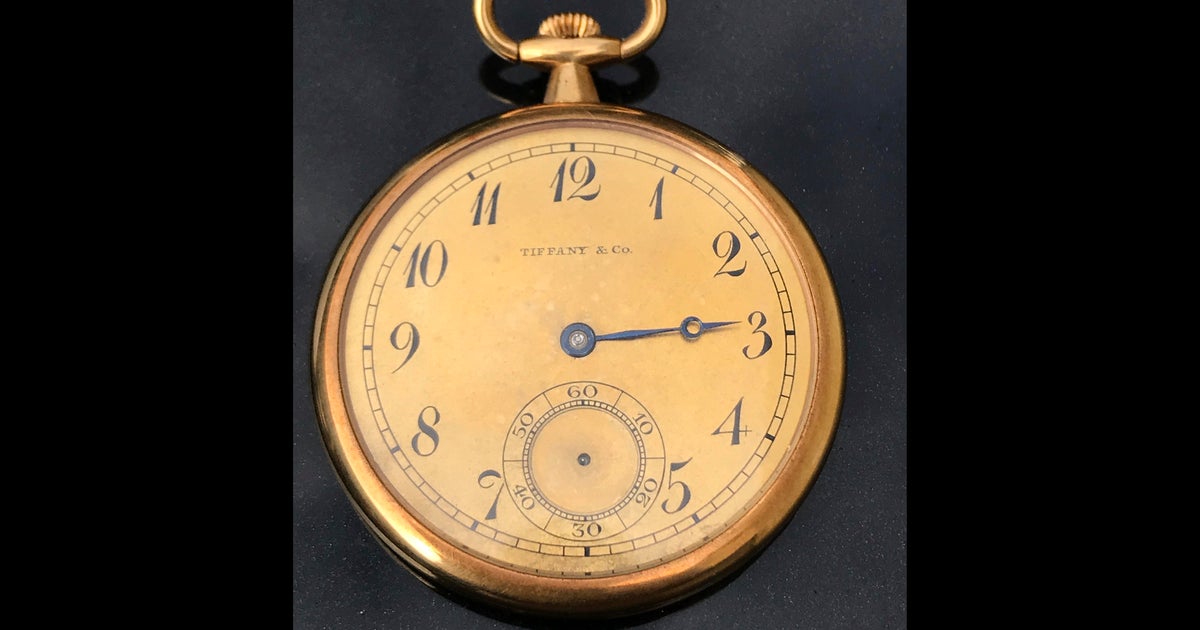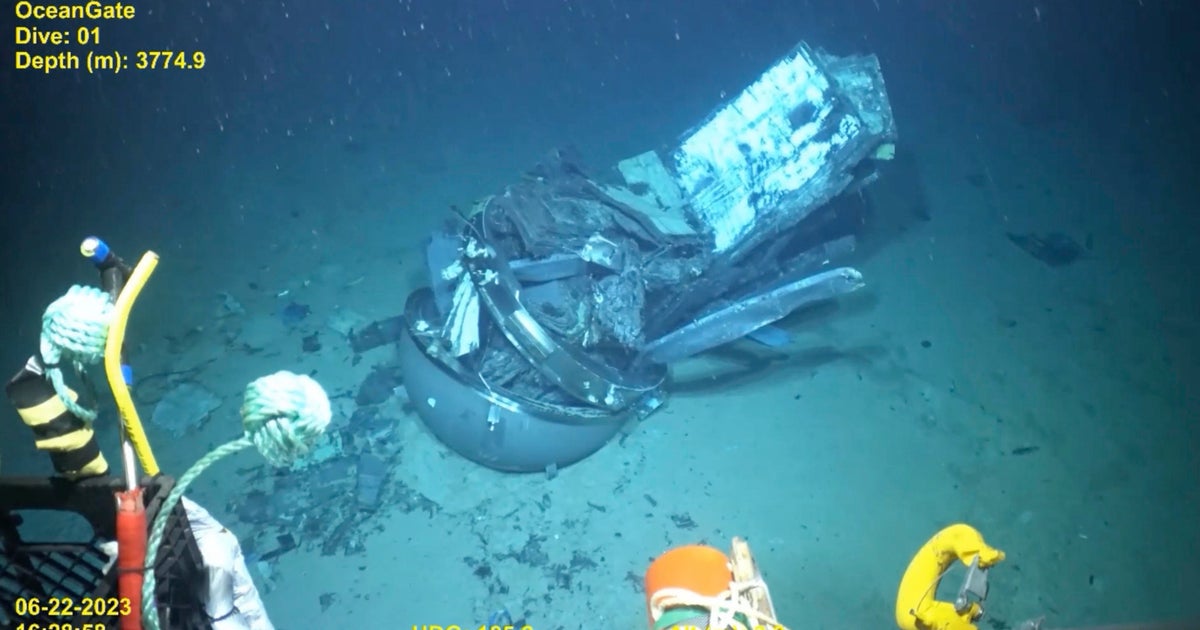CBS News
Mission to the Titanic to document artifacts and create 3D model of wreckage launches from Rhode Island

An expedition team was on their way Friday to the Titanic wreckage on a mission to explore the site and capture high-resolution photos. RMS Titanic Inc. has exclusive rights to recover artifacts from the wreckage, a privilege granted to them by a U.S. federal court order in 1994.
The company last went to the site in 2010 and they have so far found about 5,500 objects from the wreck, according to BBC News.
This mission, led by imaging experts, scientists, oceanographers and historians, will use new technology to survey the site. The crew will use remotely operated vehicles to capture images to assess the condition of the ship, which sank 112 years ago, as well as the artifacts left at the bottom of the ocean. They will also use the images to create a 3D model of the ship.
BBC News, a CBS News partner, had exclusive access to the expedition, which launched from Providence, Rhode Island. The team’s ship, Dino Chouest, will sit above the wreck in the Atlantic for about 20 days.
BBC News/Kevin Church
Last year, five men died on a submersible while on a private trip to the wreckage run by the company OceanGate, which took high-paying customers to view the wreck about 12,500 feet under the sea.
The Titan sub launched from a research vessel and lost contact with the crew above about one hour and 45 minutes into its voyage. The submersible, operated by Stockton Rush, the CEO of OceanGate, imploded, killing him and his four guests, who paid $250,000 a ticket for the journey. OceanGate suspended its operations following the tragedy.
One of the men on board the submersible, Paul-Henri “P.H.” Nargeolet, was the director of research at RMS Titanic Inc. He was set to lead this expedition, making it a moving mission for those involved.
“It’s tough but the thing about exploration is that there’s an urge and a drive to keep going. And we’re doing that because of that passion P.H. had for continuous exploration,” historian Rory Golden, Nargeolet’s friend and chief morale officer of this mission, told BBC News.
BBC News/Jonathan Amos
The crew will hold a memorial service for the five men who died on the submersible as well as the 1,500 who died when the Titanic sank after hitting an iceberg in 1912.
They hope to document at-risk artifacts and broaden information about the ship — and the marine life — sitting at the bottom of the ocean.
The remote vehicles will take millions of photographs that will be used to make a 3D model of the wreckage. “We want to see the wreck with a clarity and precision that’s never before been achieved,” co-expedition lead David Gallo said.
“If all of the weather gods, the computer gods, the ROV gods, the camera gods — if all those gods align, we should be able to capture Titanic and the wreck site in as close to digital perfection as you can get. You would be able to quite literally count grains of sand,” said Evan Kovacs, who’s in charge of the imaging program.
Xavier DESMIER/Gamma-Rapho via Getty Images
In 2023, deep-sea mapping company Magellan Ltd. created a first of its kind digital scan of the ship’s wreckage. The full-sized scan was created using submersibles that took more than 700,000 images of the ship over 200 hours. The images were used to make a 3D reconstruction of the Titanic.
The Titanic, which was dubbed an “unsinkable ship,” met its fate on April 15, 1912, after it struck an iceberg in the middle of the north Atlantic and split in two, sinking and killing about 70% of the people who were on board for the maiden voyage from the U.K.
The wreckage was first located in 1985 by a crew led by Robert Ballard. About eight days into their expedition, they found the ship about 400 miles off the coast of Newfoundland, Canada.
A blockbuster movie directed by James Cameron and starring Kate Winslet and Leonardo DiCaprio still captivates audiences more than 30 years after it premiered. The 1997 film won 11 Oscars including best picture, best directing and best original song for Celine Dion’s “My Heart Will Go On.”
CBS News
“All hands on deck” for Idaho’s annual potato harvest

Watch CBS News
Be the first to know
Get browser notifications for breaking news, live events, and exclusive reporting.
CBS News
Taste-testing “Sandwiches of History” – CBS News

Watch CBS News
Be the first to know
Get browser notifications for breaking news, live events, and exclusive reporting.
CBS News
“Sandwiches of History”: Resurrecting sandwich recipes that time forgot

Barry Enderwick is eating his way through history, one sandwich at a time. Every day from his home in San Jose, California, Enderwick posts a cooking video from a recipe that time forgot. From the 1905 British book “Salads, Sandwiches and Savouries,” Enderwick prepared the New York Sandwich.
The recipe called for 24 oysters, minced and mixed with mayonnaise, seasoned with lemon juice and pepper, and spread over buttered day-old French bread.
Rescuing recipes from the dustbin of history doesn’t always lead to culinary success. Sampling his New York Sandwich, Enderwick decried it as “a textural wasteland. No, thank you.” Into the trash bin it went!
But Enderwick’s efforts have yielded his own cookbook, a collection of some of the strangest – and sometimes unexpectedly delicious – historical recipes you’ve never heard of.
Harvard Common Press
He even has a traveling stage show: “Sandwiches of History Live.”
From the condiments to the sliced bread, this former Netflix executive has become something of a sandwich celebrity. “You can put just about anything in-between two slices of bread,” he said. “And it’s portable! In general, a sandwich is pretty easy fare. And so, they just have universal appeal.”
Though the sandwich gets its name famously from the Fourth Earl of Sandwich, the earliest sandwich Enderwick has eaten dates from 200 B.C.E. China, a seared beef sandwich called Rou Jia Mo.
He declared it delicious. “Between the onions, and all those spices and the soy sauce … oh my God! Oh man, this is so good!”
While Elvis was famous for his peanut butter and banana concoction, Enderwick says there’s another celebrity who should be more famous for his sandwich: Gene Kelly, who he says had “the greatest man sandwich in the world, which was basically mashed potatoes on bread. And it was delicious.”
Whether it’s a peanut and sardine sandwich (from “Blondie’s Cook Book” from 1947), or the parmesian radish sandwich (from 1909’s “The Up-To-Date Sandwich Book”), Enderwick tries to get a taste of who we were – good or gross – one recipe at a time.
RECIPE: A sophisticated club sandwich
Blogger Barry Enderwick, of Sandwiches of History, offers “Sunday Morning” viewers a 1958 recipe for a club sandwich that, he says, shouldn’t work, but actually does, really well!
MORE: “Sunday Morning” 2024 “Food Issue” recipe index
Delicious menu suggestions from top chefs, cookbook authors, food writers, restaurateurs, and the editors of Food & Wine magazine.
For more info:
Story produced by Anthony Laudato. Editor: Chad Cardin.


